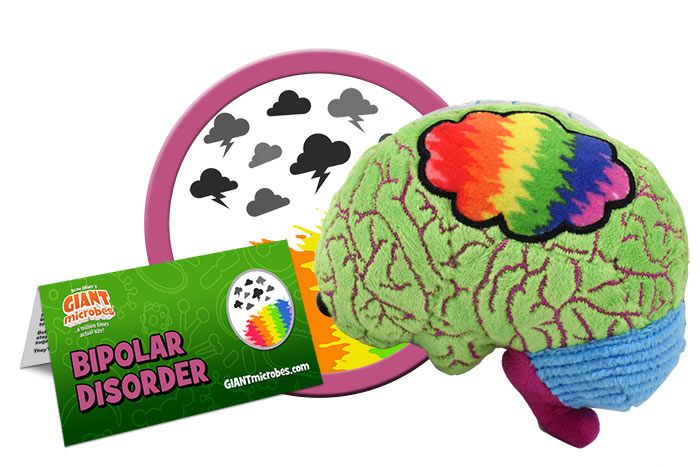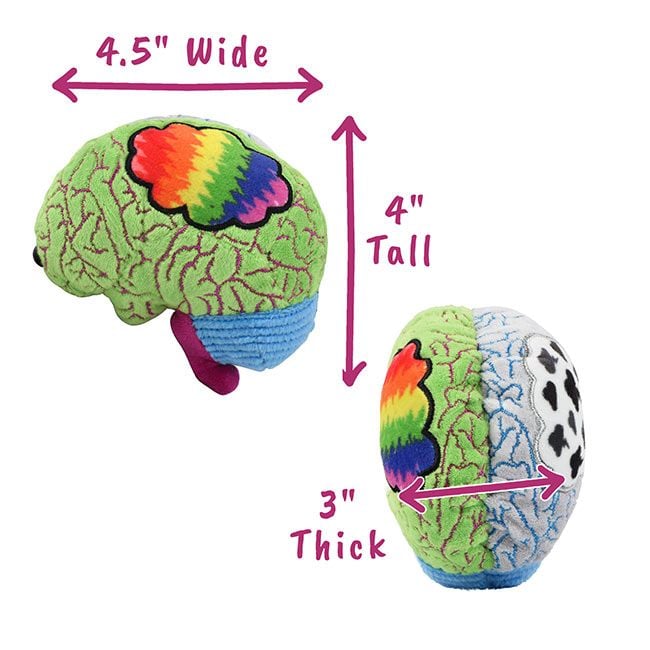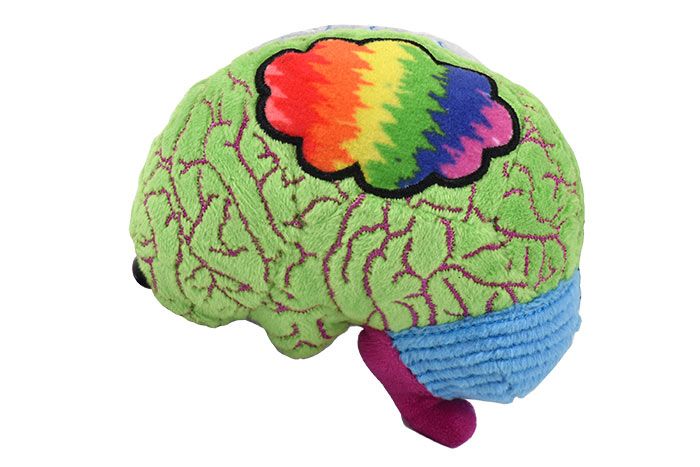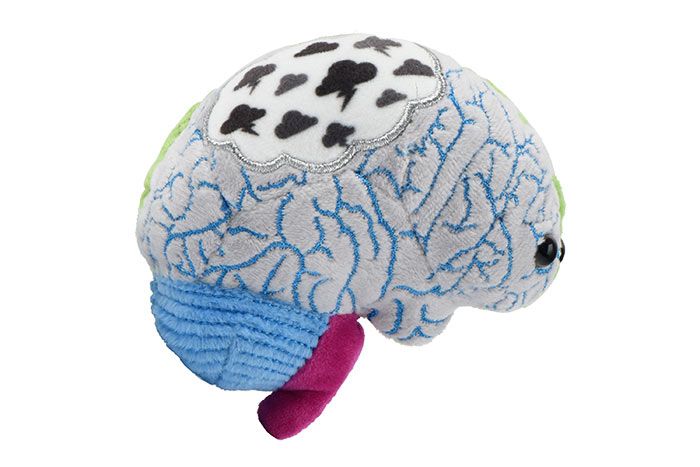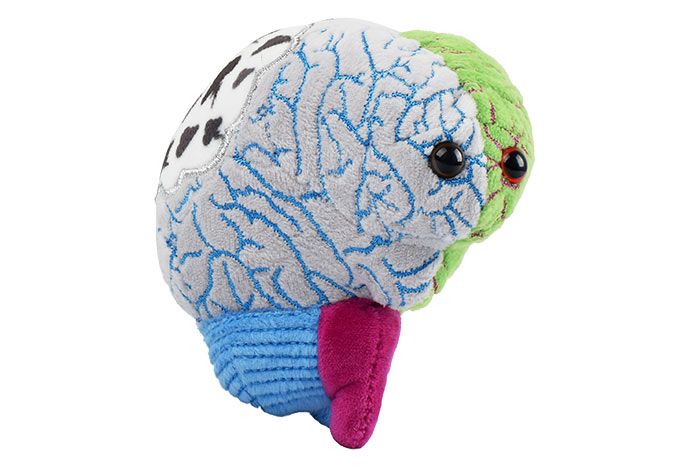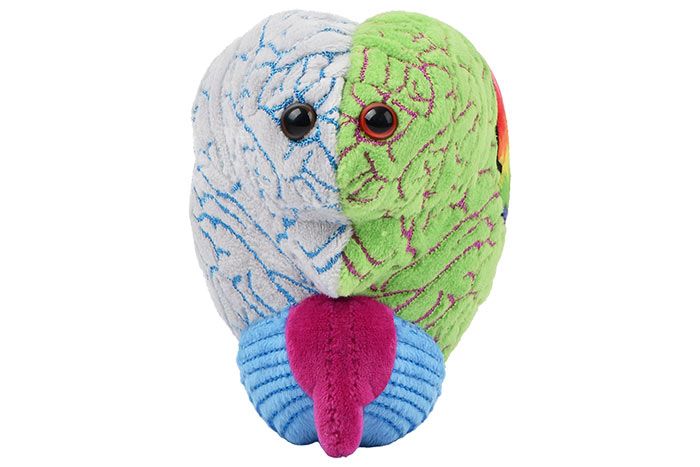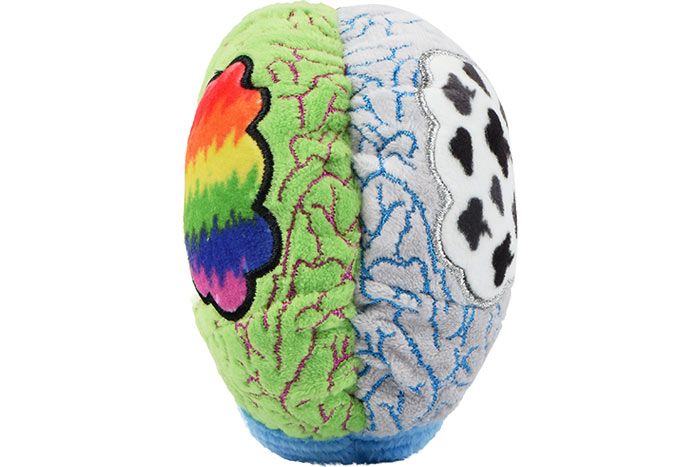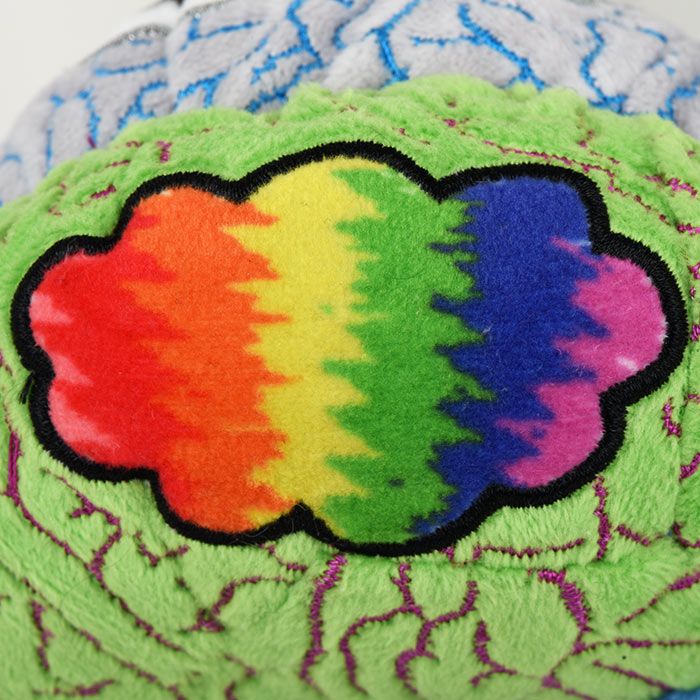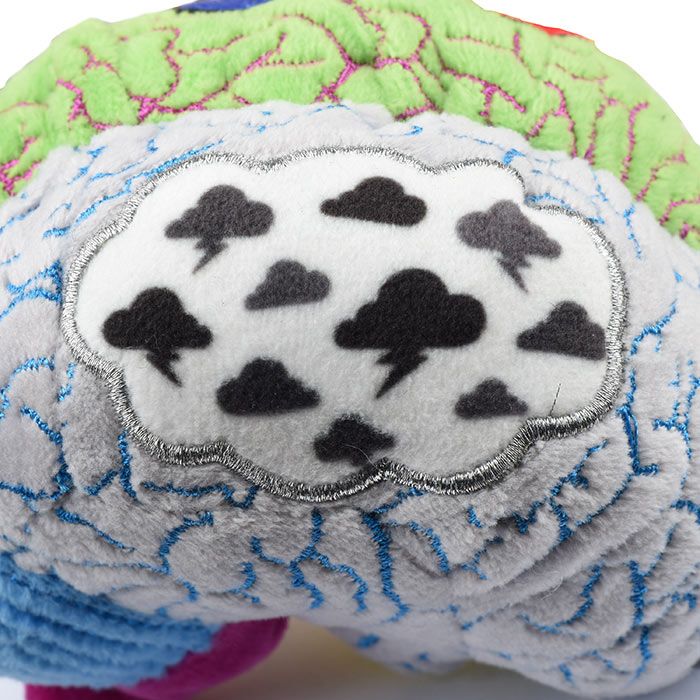Bipolar
GIANTmicrobes Bipolar is a plush representation of this disorder. This product helps educate, spread awareness, and encourage discussions about vitally important topics in mental health.
Bipolar disorder is a mental health condition that causes shifts in mood, energy and the ability to function. People suffering with this disorder may have extreme emotional highs (mania or hypomania) and lows (depression).
This plush representation features a brain with two thought clouds. For families, teachers, healthcare professionals, psychologists, therapists, public health agencies and friends - this is a unique, memorable and useful tool to help educate, spread awareness, and hopefully get more people talking about this complicated and vitally important mental health topic.
Size: 4.5 x 4 x 3"
Product Details
Additional Information
| Sizes | Giantmicrobes are based on actual microbes, cells, organisms and other critters, only 1,000,000 times actual size! Gigantic (GG) 16-24" XL (XL) 10-15" Original (PD) 5-8" Keychain (KC) 2-4" with clip |
|---|---|
| Materials | Plush from all new materials. Stuffed with polyester fiber fill. Surface washable: sponge with water & soap, air dry. |
| Packaging | Each plush microbe includes a printed card with fun, educational and fascinating facts about the actual microbe or cell. |
| Safety | Every product meets or exceeds U.S. and European standards for safety. For ages 3 and up. |
All about Bipolar
FACTS: Bipolar disorder is a mental health condition that causes shifts in mood, energy and the ability to function. People suffering with this disorder may have extreme emotional highs (mania or hypomania) and lows (depression). Bipolar disorder is often comorbid with other mental health problems including anxiety, substance use disorder, eating disorders and sleep disorders. Millions of people suffer from bipolar disorder, which was formerly called manic depression.
There are two main types with similar symptoms that differ in severity and intensity: bipolar I and bipolar II. Both types can be lifelong conditions, but treatments exist that may relieve symptoms and stabilize a person’s mood. A combination of medications, therapy and healthy lifestyle habits can enable people to lead fulfilling and productive lives.
Bipolar I disorder causes wild mood swings with high spells of mania and low spells of depression. During manic episodes a person can feel very happy and on top of the world for more than a week. Symptoms may include grandiosity, racing thoughts, increased risky behavior, being distracted and having more energy than normal. Friends and family usually notice an abnormal change in behaviors. Depression can lead to a decline in normal activities, sadness, fatigue, change in appetite and sleep habits, and thoughts of suicide. A depressive episode can last for two or more weeks.
Bipolar II disorder tends to begin with a major depressive episode followed by a hypomanic episode. The main difference between bipolar I and II is that there is no manic episode in bipolar II disorder. Hypomanic episodes are less intense than manic episodes and last only a few days. Depression also tends to last longer in bipolar II.
Cyclothymic disorder is a milder type of bipolar disorder with emotional ups and downs that are not as extreme as those in bipolar I or 2 disorders. Symptoms are not severe enough to be considered hypomanic and depressive episodes. Yet frequent mood swings and depressive symptoms may occur and cause great distress.
With all types of bipolar disorder, symptoms vary over time. The symptoms can be hard to separate from the moodiness, irritability and behaviors of normal young people. Thus, it is very important to contact a healthcare professional for a diagnosis and to select the best therapy, medications and treatments. Unfortunately, depression can lead to self-harm, feelings of worthlessness and suicidal thoughts. Please know that resources and help are available for your loved ones, friends and yourself. There is a community of people who care and you are not alone in your mental health journey. If you are struggling in any way, please call the National Suicide Prevention Lifeline at 800-273-8255 or text HOME to 741741 to reach the Crisis Text Line.


